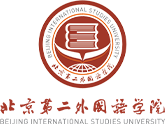
History
The history of the School of Tourism Sciences dates back to the training class for tourism cadres at Beijing International Studies University (BISU) established in 1979. BISU, which used to be affiliated with the National Tourism Administration (now the Ministry of Culture and Tourism), is one of the four earliest universities to offer tourism majors and has been one of the higher institutions offering tourism management courses.
BISU founded the department of tourism in 1981 and upgraded it into the school of tourism management in 1999. In 2018, former schools of tourism management, hospitality management and convention & exhibition management were merged into the School of Tourism Sciences. It comprises four undergraduate majors, namely tourism management, hospitality management, the economics and management of convention & exhibition, human geography and urban-rural planning. The school is aimed at fostering cultural and tourism talents of both Chinese and western culture.
Academic strengths
Three undergraduate programs and three postgraduate programs have been simultaneously awarded the highest UNWTO-TedQual certification. The majors of tourism and hospitality management have been added to the Ministry of Education's (MOE) list of national and provincial first-class undergraduate major construction sites, the national list of the first-class undergraduate programs, the Beijing municipal list of high-end and special majors, and the list of Huang Danian Teaching Teams.
The School of Tourism Sciences has many municipal-level master teachers, the Great Wall scholars and young leading scholars, nine of whom have acted as permanent editors at top international tourism journals like The Annals of Tourism Research and Tourism Management. They have published over 100 research papers on renowned international journals such as Tourism Management, Journal of Marketing, Journal of Business Studies and Journal of Business Ethics. They worked on about 10 research projects for the United Nations Educational, Scientific and Cultural Organization (UNESCO) and the United Nations World Tourism Organization (UNWTO) over the past few years.
The school has built three provincial-level research bases and maintained cooperative relations with over 50 governmental agencies like the Ministry of Culture and Tourism, industrial organizations, cultural and tourism firms, and internet enterprises.
Internationalized development
The school has built cooperative partnership with the UNWTO, the Pacific Asia Travel Association (PATA) and over 100 foreign universities, which include Cornell University, the University of South Carolina, the University of Florida, Purdue University, George Washington University, the University of Queensland, Griffith University and the University of Surrey.
Each year about 20 percent of undergraduate students in the school go overseas for studies and nearly 30 percent are admitted into foreign universities. Meanwhile, the school has enrolled nearly 50 international graduate students annually.
The school is one of the first Chinese universities that have offered educational programs for international students in English. It is also one of leading universities in China that have participated in the Belt and Road Initiative (BRI).
The school has ranked first in terms of the output of graduates majoring in tourism education in China. Many of its graduates have served as executives in the UNWTO, the World Tourism Cities Federation (WTCF), tourism agencies of foreign countries, and multinational tourism corporations.
Talent cultivation systems
The school has given full play to its linguistic and tourism-related strength in the cultivation of multi-linguistic and cross-discipline talents and the integrated development of tourism-related and linguistic majors.
For instance, students will be awarded bachelor's degrees in both management sciences and English when they take relevant courses at the same time.
In addition, the School of Tourism Sciences has provided students with professional education in other foreign languages. Statistics show that over 20 percent of students in the years between 2016 and 2020 took language courses, mainly Japanese, French and Spanish.

Links
